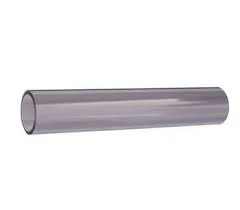Nov . 20, 2024 22:18 Back to list
natural hdpe sheet
Understanding Natural HDPE Sheets Characteristics and Applications
High-Density Polyethylene (HDPE) is one of the most widely used plastic materials in the world, known for its strength, durability, and versatility. Among the various forms of HDPE, natural HDPE sheets have gained significant attention across different industries due to their unique properties and functional benefits.
What is Natural HDPE?
Natural HDPE refers to high-density polyethylene that is uncolored and free of additives or pigments. This gives the material a translucent appearance, which allows for the natural light to pass through to some extent. The purity of natural HDPE is one of its prime advantages, making it an ideal choice for applications that require high levels of hygiene and cleanliness.
Key Characteristics of Natural HDPE Sheets
1. Durability Natural HDPE is known for its toughness and ability to withstand various environmental conditions. It is resistant to impact, making it suitable for applications that demand high strength and durability.
2. Chemical Resistance One of the standout features of HDPE is its resistance to a wide range of chemicals, including acids, bases, and solvents. This chemical inertness ensures that natural HDPE sheets maintain their integrity in harsh conditions.
3. Low Moisture Absorption Natural HDPE sheets have low moisture absorption properties. This characteristic makes them ideal for environments where moisture can cause problems, such as in food processing or medical applications.
4. UV Resistance While natural HDPE sheets are not completely UV-proof, they exhibit a degree of resistance to ultraviolet light exposure compared to many other types of plastics. This makes them suitable for both indoor and outdoor applications.
5. Recyclability Being a thermoplastic material, natural HDPE is 100% recyclable. This makes it an environmentally friendly choice, as it can be repurposed and reused after its initial life cycle.
natural hdpe sheet

Applications of Natural HDPE Sheets
Natural HDPE sheets are utilized in a myriad of applications across various sectors
1. Packaging Industry Natural HDPE sheets are frequently used in packaging solutions for both consumer goods and industrial applications. The material’s strength and resistance to moisture and chemicals make it ideal for packaging foods, beverages, and pharmaceuticals.
2. Construction In the construction industry, natural HDPE sheets are employed in various applications such as flooring, insulation, and wall cladding. Their durability and versatility allow architects and builders to integrate them into diverse design concepts.
3. Food Processing In food processing environments, hygiene is paramount. Natural HDPE sheets are often used in countertops, cutting boards, and other surfaces due to their ease of cleaning and resistance to bacteria.
4. Medical Applications The medical field also benefits from natural HDPE sheets, which are used in medical devices and components where biocompatibility and cleanliness are essential.
5. Environmental Solutions Natural HDPE sheets can be used in environmental applications, such as liners for landfills and containment areas for waste. Their chemical resistance helps in preventing leakage and contamination.
Conclusion
Natural HDPE sheets offer a combination of strength, chemical resistance, and hygiene that make them an excellent choice for a variety of applications. Their lightweight nature and recyclability add to their appeal, especially in today's environmentally conscious market. Whether in packaging, construction, food processing, or medical fields, the versatility of natural HDPE sheets is undeniable, making them a crucial material for multiple industries. As the demand for sustainable and durable materials continues to grow, natural HDPE sheets will likely play an increasingly important role in innovation and efficiency across various sectors.
-
High-Quality PPR Pipes and Fittings Durable ERA PPR & PVC PPR Solutions
NewsJul.08,2025
-
Black HDPE Cutting Board - Durable, Non-Porous & Food Safe HDPE Plastic Cutting Board
NewsJul.08,2025
-
High-Quality CPVC Panel Durable HDPE & PVC Panels Supplier
NewsJul.08,2025
-
Double PE Welding Rod Supplier - High Strength, Durable & Versatile Welding Solutions
NewsJul.07,2025
-
High-Quality PVC-O Pipe Supplier Durable 75mm PVC Pipe & Connections Leading PVC Pipe Company
NewsJul.07,2025
-
HDPE Drainage Pipe Supplier – Durable & Corrosion-Resistant Solutions
NewsJul.06,2025

